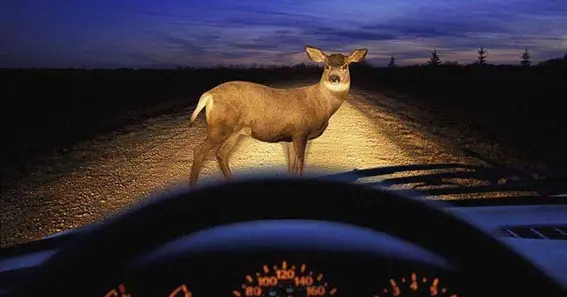Collisions between vehicles and deer are common, especially in areas with high deer populations. If you hit a deer and don’t call the police, several consequences may arise, affecting legal standing, insurance claims, and road safety.
Legal Implications
The requirement to report a deer collision varies by jurisdiction. In some states, failing to report such an accident can lead to fines or other penalties. For instance, in California, not reporting a deer collision may be considered a hit-and-run offense, potentially resulting in fines or even jail time.
Additionally, leaving an injured deer on the road without reporting can cause further accidents, leading to legal liabilities. Therefore, it’s crucial to be aware of local laws regarding wildlife collisions to avoid potential legal issues.
Also Read N: Lord Of The Flies Book PDF: How To Access And Read Legally
Insurance Complications
Most insurance companies require a police report to process claims for animal-vehicle collisions. Not reporting the accident can hinder your chances of receiving compensation for property damage. Comprehensive coverage typically handles such incidents, but without official documentation, your claim may be denied, leaving you responsible for repair costs.
Also Read P: Understanding Relays A And B In Your Car: Functions And Importance
Safety Concerns
An injured deer left on the roadway poses significant hazards:
- Risk to Other Drivers: A wounded or deceased deer can obstruct traffic, increasing the likelihood of additional accidents.
- Animal Welfare: Reporting ensures that the animal receives appropriate attention, whether rescue or humane euthanasia, preventing prolonged suffering.
Recommended Actions After Hitting a Deer
- Ensure Personal Safety: Safely pull over to the side of the road and turn on hazard lights to alert other drivers.
- Assess the Situation: Check for injuries to yourself or passengers and evaluate vehicle damage.
- Contact Authorities: Call local law enforcement to report the incident, providing details about the location and condition of the deer.
- Document the Scene: Take photographs of the scene, vehicle damage, and the deer, which can be useful for insurance claims.
- Notify Your Insurance Company: Inform your insurer promptly to initiate the claims process, providing them with the police report and any other required information.
Conclusion
Failing to report hitting a deer can lead to legal penalties, complications with insurance claims, and safety hazards for other motorists. It’s essential to understand local regulations and take appropriate steps following such an incident to protect yourself and others on the road. Always prioritize safety and adhere to local regulations to avoid unnecessary consequences.
FAQ
- Is it illegal to hit a deer and not report it?
In many jurisdictions, failing to report a deer collision can result in legal penalties, especially if it leads to road hazards or involves significant property damage. - Will my insurance cover damages if I don’t file a police report?
Most insurance companies require a police report to process claims for animal-vehicle collisions. Without it, your claim may be denied. - What should I do immediately after hitting a deer?
Ensure your safety by pulling over, assess any injuries or damage, contact authorities, document the scene, and notify your insurance company. - Can I keep the deer if I hit it with my car?
Regulations vary by state; some allow you to keep the deer if you obtain a permit, while others prohibit it. Check local laws before taking any action. - What are the risks of not reporting a deer collision?
Not reporting can lead to legal penalties, denied insurance claims, and increased safety hazards on the road.










